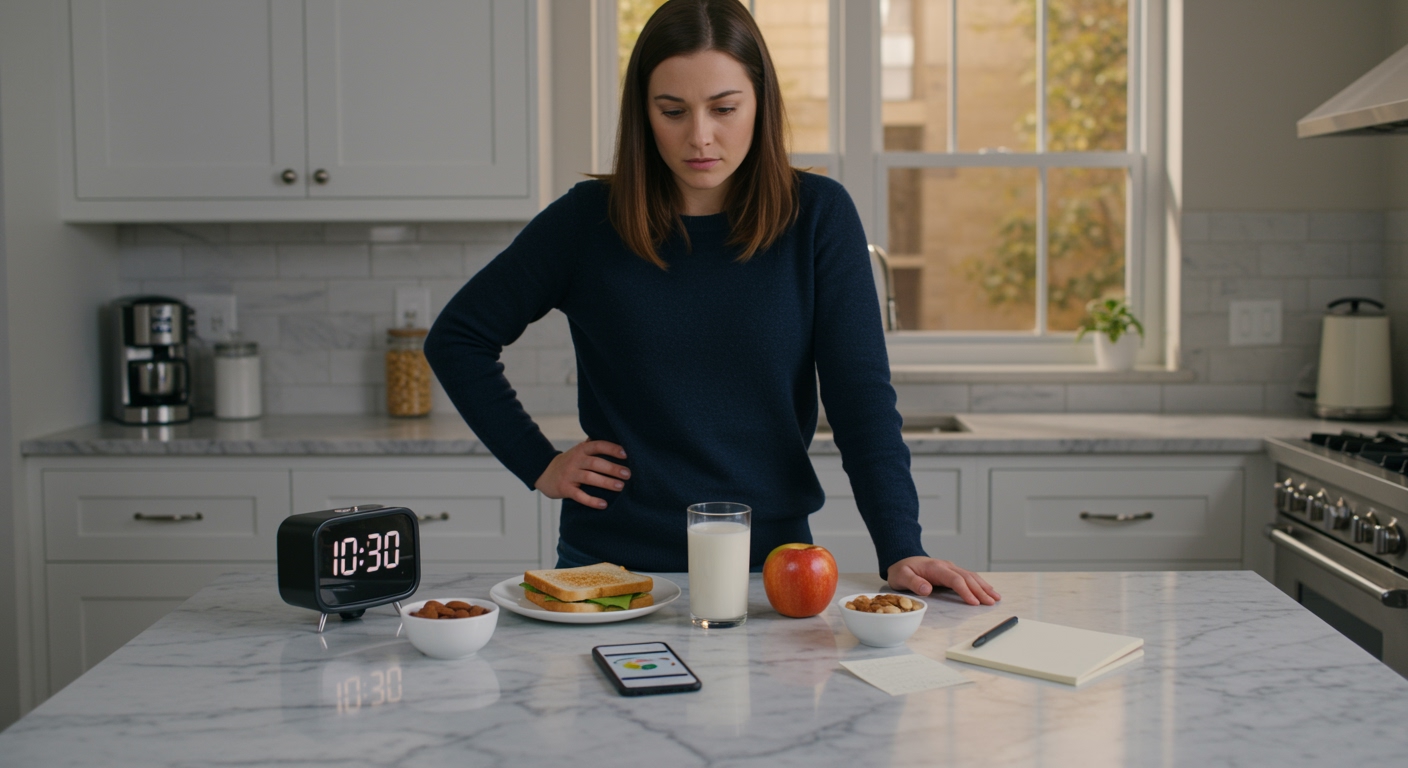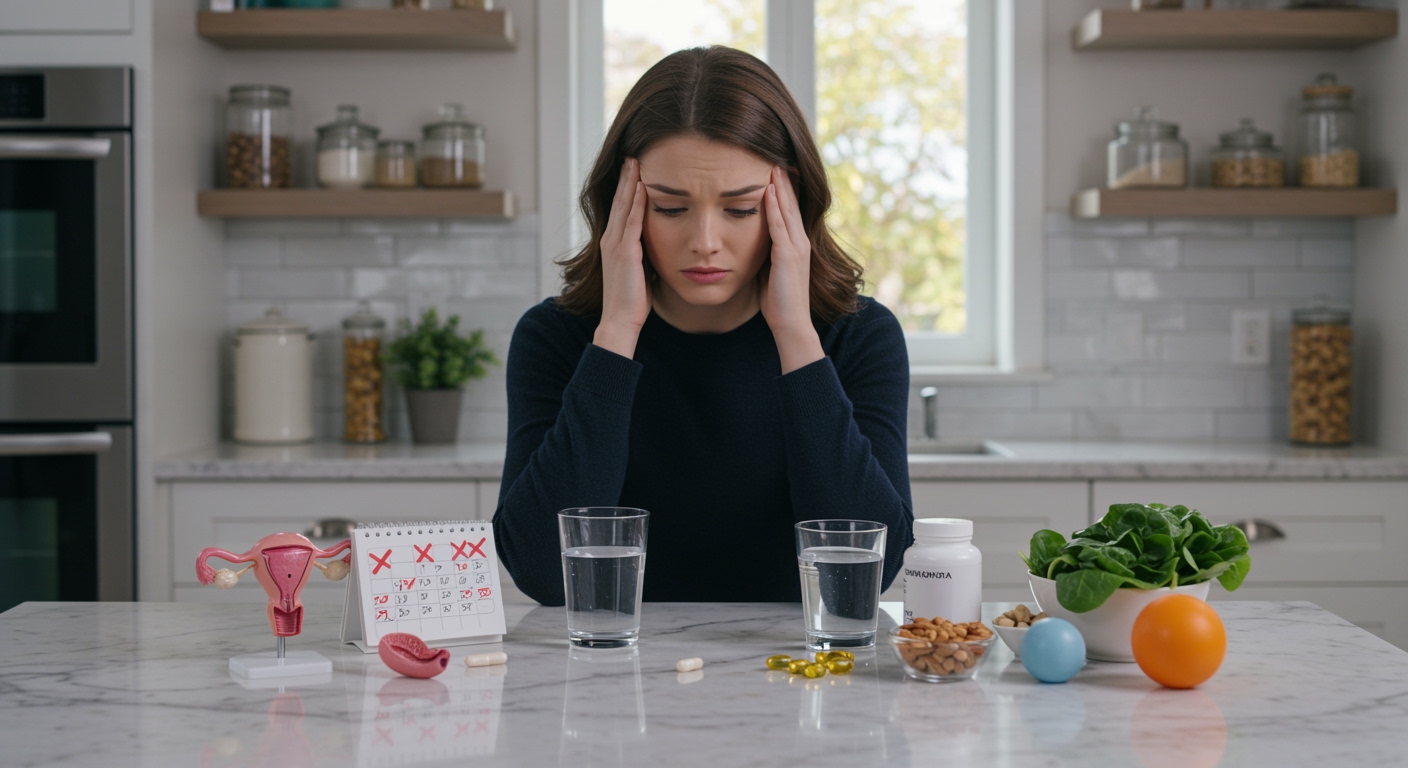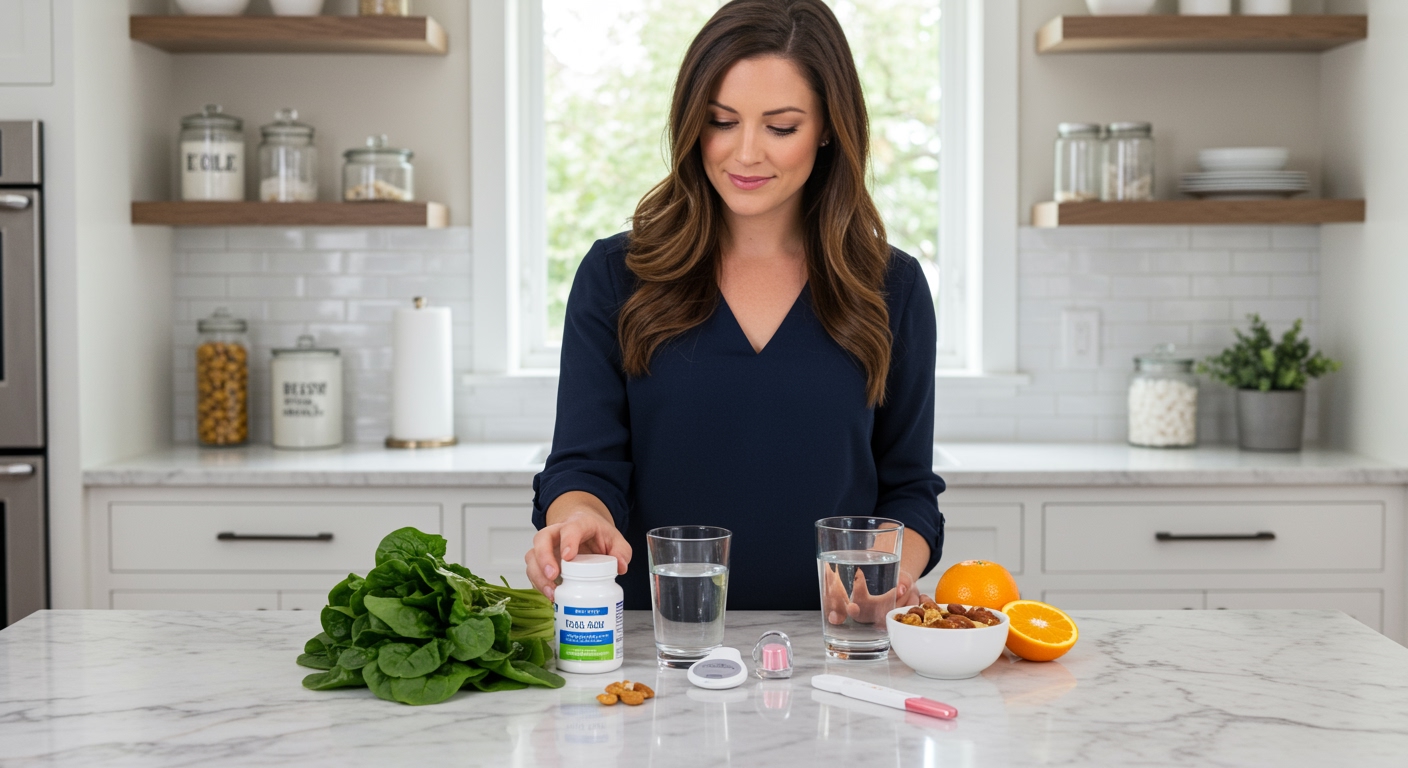✪ Key Takeaway: PCOS patients should avoid eating late at night because it disrupts insulin sensitivity and worsens hormonal imbalances.
Introduction
You grab a snack at 10 PM and wonder if this habit is making your PCOS symptoms worse.
Many women with PCOS struggle with late night cravings and worry about how eating timing affects their condition.
Hi, I am Abdur, your nutrition coach and today I am going to explain why late night eating can be particularly harmful for PCOS patients and what you can do about it.
How Does Late Night Eating Affect PCOS Hormones?
Late night eating creates a hormonal storm that directly worsens PCOS symptoms.
Your body naturally produces less insulin at night, which means any food you eat gets processed less efficiently.
This leads to higher blood sugar levels that stay elevated longer than they would during daytime eating.
Elevated blood sugar triggers more insulin production, and excess insulin is the main driver of PCOS symptoms like irregular periods and weight gain.
Research shows that women with PCOS who eat late at night have significantly higher insulin resistance compared to those who stop eating earlier.
The combination of poor insulin sensitivity and disrupted circadian rhythms creates a cycle that makes PCOS management much harder.
✪ Fact: Your insulin sensitivity drops by up to 50% during nighttime hours compared to morning levels.
What Happens to Your Sleep When You Eat Late?
Late night eating severely disrupts your sleep quality, which is already compromised in many PCOS patients.
When you eat close to bedtime, your digestive system stays active instead of winding down for rest.
This keeps your core body temperature elevated, which interferes with the natural temperature drop needed for deep sleep.
Poor sleep directly increases cortisol levels, and high cortisol worsens insulin resistance in a vicious cycle.
Studies show that PCOS patients who eat within 3 hours of bedtime experience more sleep disruptions and wake up feeling less rested.
The lack of quality sleep also increases hunger hormones like ghrelin, making you crave more food the next day.
This creates a pattern where poor sleep leads to more late night eating, which leads to worse sleep, and the cycle continues.
✪ Pro Tip: Stop eating at least 3 hours before your planned bedtime to allow proper digestion and temperature regulation.
Why Do PCOS Patients Crave Food at Night?
PCOS patients experience stronger nighttime cravings due to disrupted hunger and satiety hormones.
Insulin resistance affects leptin, the hormone that signals fullness, making it harder to feel satisfied after meals.
This means you might feel hungry even when your body has enough energy stored as fat.
High cortisol levels, common in PCOS, also increase cravings for high-carb and sugary foods, especially in the evening.
Additionally, many PCOS patients experience blood sugar crashes in the late afternoon or evening due to poor glucose regulation.
These crashes trigger intense hunger and make you reach for quick energy sources like processed snacks or sweets.
Understanding these biological drivers helps you recognize that late night cravings are not a lack of willpower but a hormonal response that needs strategic management.
✪ Note: PCOS patients have up to 40% higher ghrelin levels at night compared to women without PCOS.
What Should You Do Instead of Late Night Eating?
The most effective strategy is to eat your last meal at least 3 hours before bedtime and focus on balanced daytime nutrition.
Plan your dinner to include adequate protein and healthy fats, which help maintain stable blood sugar levels throughout the evening.
If you experience late night hunger, drink a large glass of water first, as thirst is often mistaken for hunger.
Create a relaxing bedtime routine that includes activities like reading, gentle stretching, or meditation to distract from food thoughts.
Keep tempting snacks out of easy reach and stock your kitchen with PCOS-friendly options like nuts or Greek yogurt for genuine hunger emergencies.
Consider having a small portion of protein-rich food if you absolutely must eat, as protein has the least impact on blood sugar compared to carbs or fats.
Track your eating patterns for a week to identify triggers and develop personalized strategies that work with your lifestyle and schedule.
✪ Pro Tip: Brush your teeth immediately after dinner to create a psychological barrier against late night snacking.
The Bottom Line
Late night eating is particularly harmful for PCOS patients because it worsens insulin resistance, disrupts sleep quality, and creates hormonal imbalances that make symptoms harder to manage.
Your evening choices shape your morning hormones, so protecting your sleep and metabolic health by avoiding late night eating is one of the most powerful tools in your PCOS management toolkit.
What strategies have you tried to manage late night cravings, and which ones worked best for your PCOS symptoms – share your experience in the comments below.
References
At NutritionCrown, we use quality and credible sources to ensure our content is accurate and trustworthy. Below are the sources referenced in creating this article:
- OvaFit: How to Stop Cravings at Night PCOS
- Fertility Center: The Role of Sleep in PCOS
- PubMed Central: PCOS and Sleep Research
- Mass General Brigham: Nutrition for PCOS





